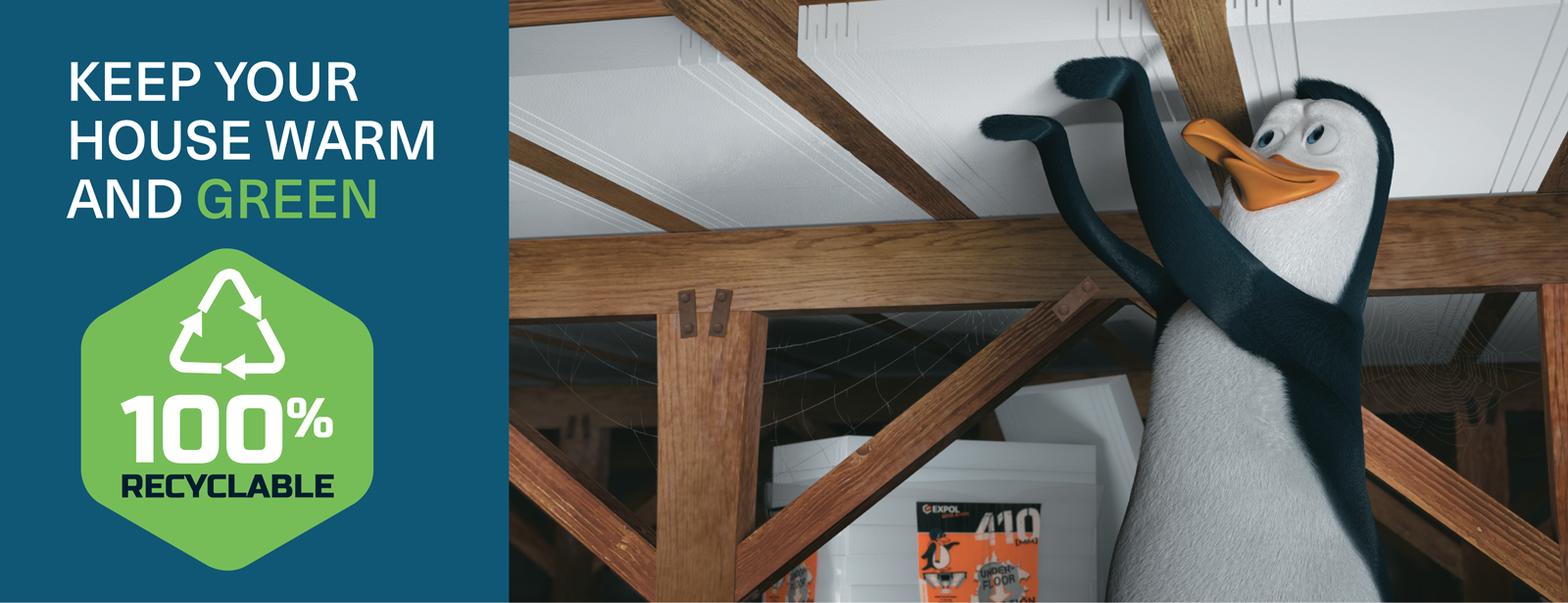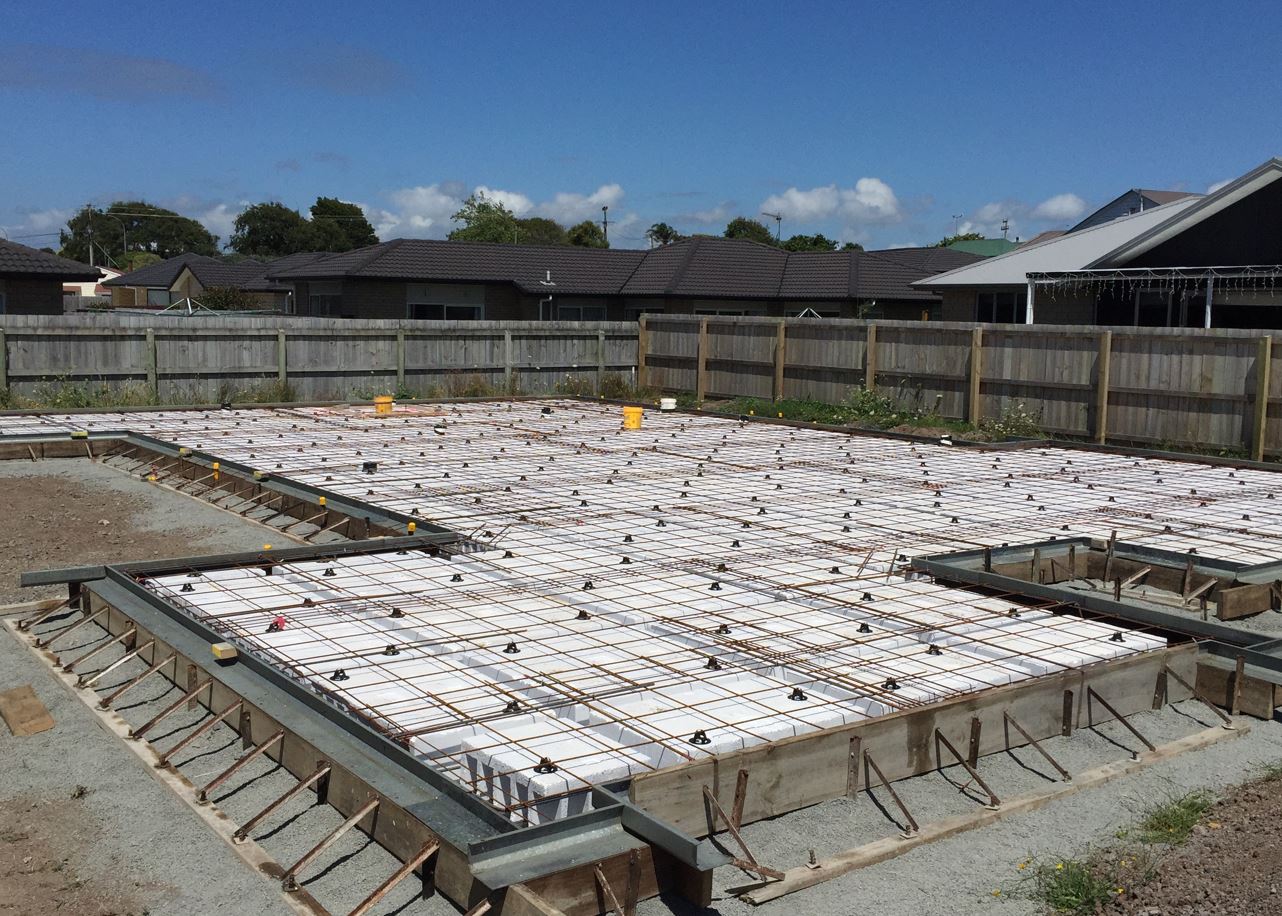As we experience the hottest summer in years, a critical debate is unfolding around New…

No more waste in landfill
Kiwi company waging war on polystyrene waste: “right thing to do”
When it comes to insulating and building homes, along with packaging appliances, polystyrene is a star – but it gets a bad rap when it comes to the environment, thanks to the fact it is made of plastic.
The good news is that waste polystyrene can be recycled. The bad news is that it can’t go into council recycling bins.
Instead EXPOL, New Zealand’s largest manufacturer of polystyrene insulation and construction products, is doing that job – recycling it at seven plants around the country. It not only does that for its own products, but any polystyrene waste, collecting 500 tonnes of offcuts and household waste a year to be recycled.
That is a massive amount if you consider the featherweight mass of polystyrene and, in recent years, EXPOL has been working on ways of making it easier for offcuts and other waste to get to them from households, building sites and businesses. As a result, it is preventing hundreds of thousands of cubic metres from going into landfill.
“Polystyrene has been seen as problematic from an environmental point of view for a long time now, and we’ve been looking at what we can do about that – not just our own waste but the waste from consumers,” says EXPOL managing director Mark Mischefski. “Sustainability is very important to us.”
EXPOL has set up 28 collections bins around the country – many at Mitre 10 stores – where people can leave polystyrene that’s left over, whether from cutting EXPOL underfloor insulation down to size or from packaging of goods like televisions and fridges.
“People often don’t realise that polystyrene can’t go into their recycling bin because it can’t be separated at the recycling centres,” says Mischefski. “If you do that, it will just end up in landfill.”
Many of EXPOL’s collection bins are located at ITM stores and council refuse stations, as well as Mitre 10 stores (bin locations available on expolearth.co.nz).
The construction industry is a major source of polystyrene wastage so, to counter this, EXPOL not only delivers its products to building sites, but will come back to pick up anything that hasn’t been used.
“Some builders don’t like having to deal with waste, they just want to get on with building. We try to make things easier for our customers by collecting the polystyrene offcuts from them.”
Polystyrene waste can pose an extra environmental problem because it’s so lightweight. “If it hasn’t been contained and you get some wind, it can end up being blown from the building site all over the place,” says Mischefski. “We provide bags for the customer to put it in, to prevent that.”
They’ve also stepped up on occasions when they’ve been notified about pieces of polystyrene being distributed in the streets surrounding building sites thanks to the wind. “We’ve sent out a truck to clean it up.”
After being collected, the offcuts are sorted, ground down and re-used in EXPOL products. Around 10 percent are re-purposed as Green Beans, which are used to fill bean bags. “We introduced this product about 18 months ago and since then we’ve sold enough to fill more than 10 Olympic-sized swimming pools. That’s all waste that would have gone into landfill, so making the effort to recycle can have a huge impact.” Moreover, these beans can be recycled again and again.
EXPOL, which also recycles polystyrene from large commercial users like appliance retailers and importers, initially embarked on its sustainability journey years ago by looking at ways it could reduce waste in its own factories.
The company – started by Mischefski’s father Terry in 1977 to make packaging for New Zealand-made electronics, moving into insulation in the 1990s – makes sure all waste from the manufacturing process is recycled. Even the dust generated is collected and compacted, then recycled.
Now EXPOL is looking at how it designs and cuts products for customers in the construction industry to save on waste. A recent order involved custom-making polystyrene for concrete slab insulation to the client’s exact specifications, drastically reducing the amount of leftover product.
“That will end up saving 2500 cubic metres of material a year, which is significant,” points out Mischefski. “Truck and trailer units are 80 cubic metres, so that means we’re saving 32 trailers, full to the brim, of material by working with the customer to pre-design the product.”
With the wellbeing of the planet in mind, EXPOL has also invested heavily in more efficient machinery, saving huge amounts of energy. “We rely on steam to produce our products and heating water uses a lot of energy, so the less steam we can use, the better. We’ve bought top of the range machinery from Italy and Germany – newer technology reducing our footprint in that space.”
EXPOL also sells a product that provides an eco-friendly solution to cutting polystyrene on building sites. Rather than using a handsaw, which tends to create a mess, the cutter uses a heated wire to slice cleanly through polystyrene.
The impact the company has on the environment is always at the forefront when it comes to making business decisions, says Mischefski. “Whenever we decide to do something, we look at reducing our impact, whether it is energy savings or how we can recycle more. It’s important, so it’s become very much ingrained in what we do.”
For more information visit expol.co.nz/recycling-programmes/



